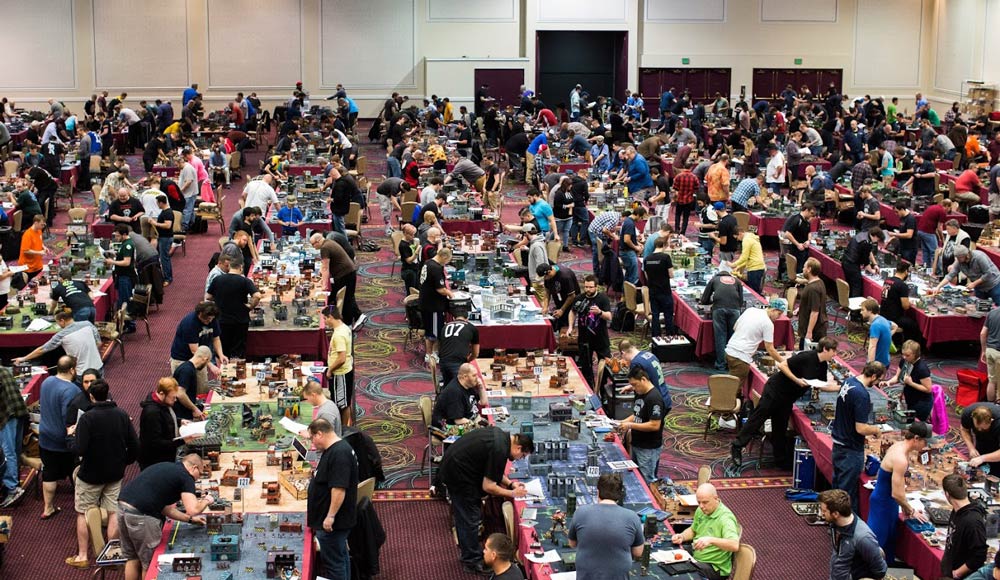
Well, here we are again. Now well into the “dust has settled” stage of the post-beer-coozination of the Iron Halo GT and amidst a world in crisis full of people stuck at home with internet connections constantly abused by opinions, it’s time to have a talk about ethics. After all, what is the point of talking philosophy in the hobby if unless we actually apply that to how we live our lives? Except for the memes, I suppose.
There will be no video this week since I have some disruptions in my schedule and don’t have the time to produce one before this goes live. Putting out two articles last week and two videos ate up a bunch of time, and I’d be remiss to have a conversation about responsibilities while abandoning some of my most important ones. I may create a video later this week and post it here in an article update, but it all depends on time. Thanks in advance for understanding! With that, let’s get to work!

Being Good When It Doesn’t Matter
I enjoy ethics questions because I think ethics are very important. The discussion of ethics in games and hobbies is especially interesting because in a game situation like ours where we don’t have to worry about players not making a living off of the winnings of even the largest tournaments, the true character of players is better on display. Casual gaming (which even the most competitive 40K gaming ultimately is) asks the question: How do your ethics manifest themselves in unimportant circumstances?

This question is important because if you are willing to break rules or otherwise behave unethically when nothing is at stake except your reputation, you are more likely to break rules or behave unethically when it does matter. Look at the works for the respected psychologist Jean Piaget, who discussed gameplay behaviors in detail (especially in terms of child development). To sum up, when playing games, being good at the game isn’t manifested solely by winning. Being ‘good’ at the game is playing it in such a way that allows you to play as many games as possible in the future as well.
Ethics are closely tied to this metric of “good at the game.” In the ITC, we have codified an ethical standard with the ITC Code of Conduct (CoC) which is a very verbose way of saying if you want to keep playing the game then play ethically or we won’t let you play the game with us anymore. This is true even for children (Piaget’s primary focus for study) because a game that allows people to break its rules is not a game that continues – play eventually dies out when the gameplay isn’t fair, and participants leave to create or seek new games. That also isn’t to say that changing the game is bad when someone introduces a new aspect to the game that everyone enjoys, in which case the game adapts to integrate the new cool idea. To bring it into 40K, if we want competitive 40K to continue bringing in people who play by the rules, we have to police people who don’t play by the rules. That’s essentially what the CoC sets out to achieve.
Their ethics manifest themselves in how they play the game. This can be anything from, say, registering under the wrong team name to avoid difficult matchups, nudging models with your water bottle to give yourself an extra boost, and padding your tournament numbers with fake names, to scoring yourself incorrectly despite specific instruction. You can say that “we can never really know intent” but that’s a cop-out that unethical players can and do take advantage of. Unethical behavior relies upon the acceptance and “benefit of the doubt” attitudes of the people around them. The most extreme examples of this are a form of sociopathic behavior that goes as far as to “gamify” the limits of the benefit of the doubt. To bring this concept into relevance here, there are people in the community who gamify how much they can get away with when it comes to interactions with their opponents, judges, and event organizers. It may even be (and likely is) a key part of their enjoyment of games in general.
Code of Conduct: Origins
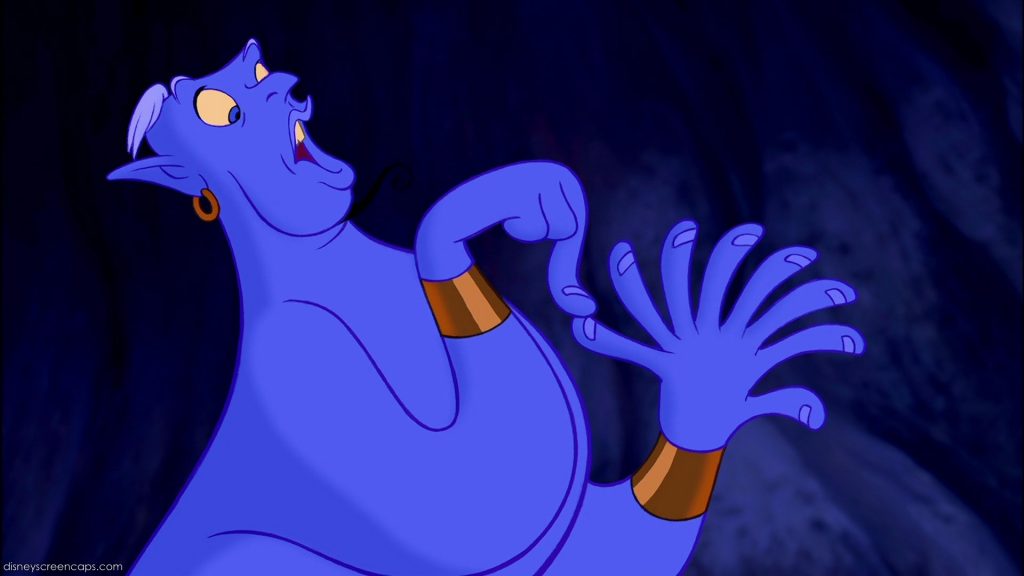
For those who don’t know, the ITC CoC was a document created by the LVO judges to help codify and quantify a set of behavior standards. This happened because there was a demand for it. Judges across the country were wrestling against players in their communities who were driving away attendance and stirring up controversy by pushing the boundaries of a nebulous social contract. While not everyone liked the idea that we had to create a set of rules to police this behavior, it has at the very least armed judges with a tool they can use to help control bad actors in their communities.
Of course, for some of the bad actors, this just adds an additional level of gameplay to their participation in the ITC. Every system is a set of rules is a wall that some people would rather break or climb over instead of following the path around. Considering that this was happening anyway, articulating the social contract had less to do with punishing bad actors and more to do with arming good actors with a standard that they could implement to enforce the terms of the social contract in a fair way.
Gauging Intent

Then there’s the “unknowable intent” argument where people try to argue that we can’t say that player A is a bad person because we don’t know if they intended to cheat. This argument would seek to impose penalties that do not discredit a person’s individual character for violating the rules. I think this is a lazy way of looking at ethics in our hobby, and while is high-stakes sports a financial penalty might work since there’s tons of money on the line for winners, in our hobby it does not. We spend time in this hobby, we rarely earn money (and never time) so it’s not feasible to penalize money anyway. The ITC isn’t going to fine bad actors. The only currency we can reasonably limit is (fundamentally) the time the bad actor gets to spend with the rest of us. Even so, for the reasons I outlined above about showing good behavior when it doesn’t matter, I think that we can reliably figure out someone’s character by how they act.
Until we can get inside people’s heads and read their minds, manifested action is the only metric we have to measure someone’s intent by. Even if we could get inside people’s heads, there’s no guarantee that they even recognize their own behavior as wrong because the longer they act out their unethical behavior the less their mind notices that they are doing something wrong. The way they perceive reality becomes structured around how their unethical actions manifest in the world. This gets into the psychological weeds a bit, but think of it this way: a road that is used more often gets priority on maintenance. Our brains work the same way. If we cheat and win, then it becomes easier to do so. That’s how dopamine works. As you do it more, the more it cements itself into your behaviors, and the harder your brain works to reinforce the easy pathways. Thankfully the reverse is also true, as good and honest behavior put in practice applies to other parts of life as well.
For a cheater, after a while, cheating becomes less of a conscious decision and more the default way of acting in the world. Dopamine rewards the brain as the payoffs add up, and like all habits, it becomes tough to break. This is why cheating when nothing is really at stake is a bad sign of how someone lives their life. These pathways of thought aren’t specific to hobbies. If you lie and cheat regularly, then you become a liar and a cheater. Liars and cheaters are bad people. You don’t have to lie and cheat 100% of the time to lie and cheat enough for people to not trust you, either.
Whataboutism
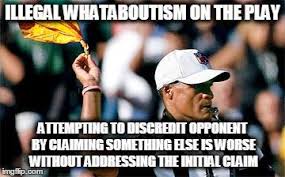
But what about people who just make mistakes? The game is complicated, right? Even for people who don’t “mean to” to cheat, their lack of understanding at the very least betrays either ignorance or apathy to understanding that can still be harmful to the overall health of the game and community. While it sounds harsh, people who are apathetic about following the rules or learning them are very rarely going to be in high-profile scandal situations anyway.
Intent is ultimately manifested through action. Our system as codified in the CoC has determined the extent of allowance we will give to “unknowable” intent in the form of yellow card offenses. Repeated yellow card offenses manifest clear patterns of behavior that lead to eventual expulsion. The red card offenses are where we have drawn the line where “benefit of the doubt” ends whether it comes from cumulative manifestations of minor unethical behaviors or single manifestations of wrongful action bad enough to warrant expulsion on their own merits.
Accidents and misreadings happen. That’s why we have an allowance in the form of yellow cards. Saying that unintentional cheating happens does not eliminate the need for rule enforcement and cannot (and should not) disallow judges or the community from coming to conclusions about someone’s character to determine whether or not this person should be allowed to continue corrupting the health of the game. Saying to “not judge” goes against a judge’s job description and defies the notion of internal arbitration entirely.
I can also guarantee that if you say you “don’t judge” then you’re lying to yourself. Inasmuch as you come to conclusions and make decisions between things in your life, you judge. It’s why you like some food more than others at a buffet instead of taking from all dishes equally. It’s why you enjoy games versus this guy over “THAT guy.” You are constantly taking input and making cost/benefit analysis about everything you do with your life, who you prioritize your time to spend with, and which causes you do or don’t support. Saying you “don’t judge” is attempting to avoid the consequences of voicing the judgment you’ve already come to in your head, nothing more.
Practical Applications of Ethics & Philosophy
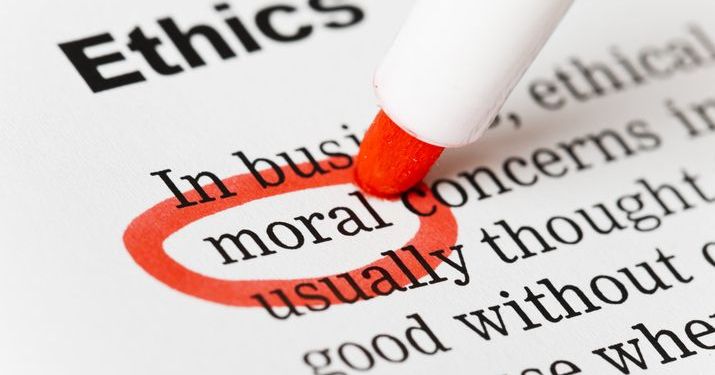
Insofar as a person engages in unethical behavior deliberately in the course of playing a game, that person is alienating themselves from opportunities to participate in the game in the future. Inscrutable intent is measured by a yellow/red card system. Continual abuse of the rules will show by repeated violations. Consistent violations over time show a pattern of behavior. The pattern of behavior shows TO’s and other organizers your intent.
This is the system we have created to protect the ethical integrity of competitive play in the ITC and to not apply it when a player has violated the rules discredits the entire system.
So, does the breaking of the rules make someone a “cheater” or a “bad person?” Not definitively on the first violation, but I think it is safe to say that repeated manifestations of unethical behavior are a very clear sign of someone not only being a cheater but also becomes a solid indication of their overall character. All things have a hierarchy, which we have laid out in the CoC in terms of offense. Insofar as groups of individuals accept, incentivize, justify, defend, and reward bad behaviors, those groups also (by the same principle of intent manifested through action) show themselves as lacking ethics and morals that are necessary for a game/community to continue healthily. It then becomes necessary for those who wish the game to continue to manage those individuals and groups for the sake of the game’s integrity.
Anecdotally Applicable
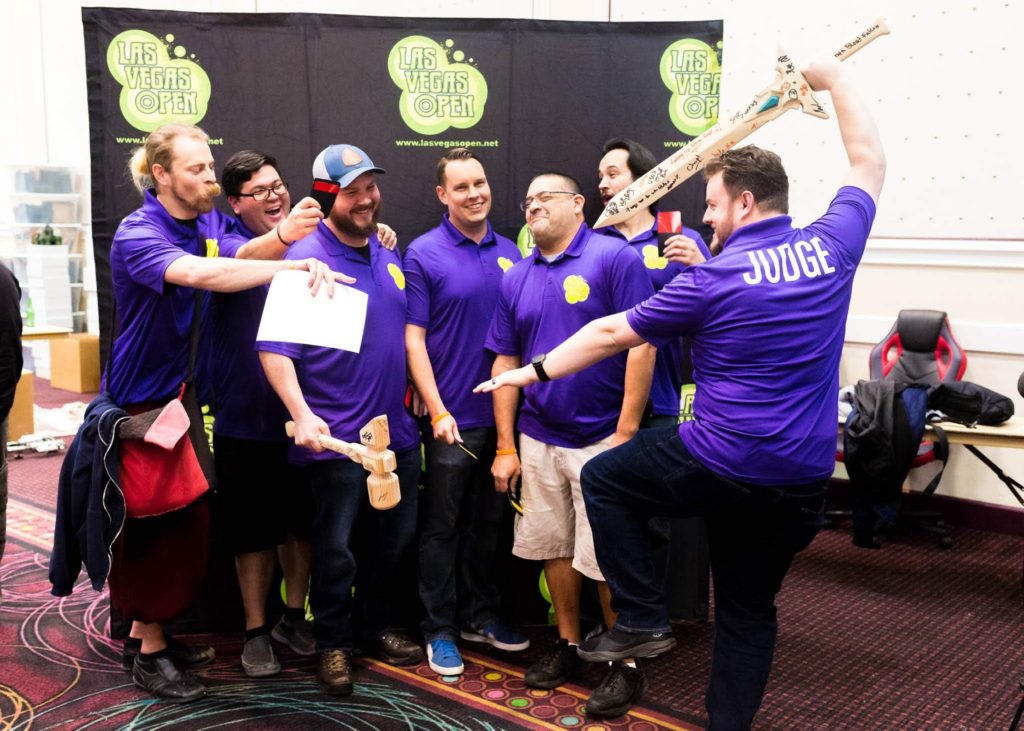
Judging LVO for years and personally interacting with certain players, I can recognize when there is a simpering facade over a venomous snake. One player in particular comes to mind who I have had to actively manage every year I have judged the LVO. He has acted out his lack of ethics so consistently and with such effectiveness (looking at his competitive record) that this behavior is obviously like second nature to him. Shutting down his ability to ride that “benefit of the doubt” line as hard as he has in the past frustrates him. That’s why I said “venomous snake.” Once he realized that his attempts to manipulate the judges and appeal to authority had failed at the last LVO, his true self showed right in his eyes and there was a clear change in behavior and body language to match his revealed countenance. For the sake of the community at large, players like him must be managed or even excluded to preserve the ability for the game to grow and continue. If he put as much effort into playing ethically as he did into trying to play dishonorably, what would his image in the community look like, I wonder?
So is it wrong to conflate judgment of character due to rules violations? No. In fact, in a voluntary hobby with no real stakes, I think it is the best way to see someone’s true character. If I see someone cheating at their hobby with no stakes, I would never go into business with or trust that person for something that truly mattered. That said, the ITC isn’t here to police people’s morals outside the realm of ITC gaming and should only concern itself with the continuation of the circuit. That said, we as individuals can and will make value judgments about individuals who cheat at a game of toy soldiers and dice, and I don’t think we shouldn’t.
A Final Note on the Talk We Aren’t Having
Part of the conversation that I don’t think is happening enough on the “enforcement” end of this discussion is a discussion of responsibility. So much of this conversation revolves around players being responsible for their actions (and they should be) but the judges also have a responsibility that is not being talked about as much. We love judges in our community (unless you are a cheater) because of all the work they go through, but they aren’t immune from this conversation either.
If you are a judge and you are not prepared to enforce the rules, then you should not be a judge. Being a judge is accepting the responsibility for maintaining the health of the game in the domain you judge. The internet means that your visibility is bigger than just the space between the tables you patrol. You must be prepared to use the tools you are provided with to ensure fairness, especially against players you know.
Learning to do this is difficult, but comes with practice. The first events that I ran I had to deal with difficult situations to arbitrate, and it was hard when I had to admit a time or two when I made a bad call, but acknowledging that and being honest about it meant that I didn’t lose the trust of the players. Some of my best friends in the hobby are people who disagreed with me on a tough call and were affected by the consequences of a mistake on my part. I have come to deeply respect and value them and their opinions in the time since.
You can be empathetic and understanding of players going through hard times, forgetting models, and having lapses in personal judgment, but you as a judge are the arbiter of the rules that the entire player population depends on to keep the system running. The CoC empowers you to enforce the rules. If you aren’t prepared to do it, give the job to someone who can. Unfairly or selectively enforcing the rules discredits the entire system more than any individual player does.
Beyond that, if you are a judge who manipulates the scoring and attendance system, you are a bigger problem than even a group of bad players. I think in addition to the CoC about player behavior, there should be conversations about how responsible event organizers and players police the bad actors among the judges.
An Ongoing Conversation
What do you think? Does cheating make someone a bad person? How would you solve this problem? Let me know in the comments!

If you found this interesting, please check out my page Captain Morgan’s Librarius. You can also check out the content on my new YouTube channel for audio versions of my articles and other 40K videos. These are the spaces where I test these ideas in their first drafts and also talk about all the other parts of the hobby that I enjoy from painting, community, and gaming to all the rest. It’s also the best place to converse with me about this and many other topics in 40K. Likes and shares are appreciated. I hope you enjoyed this week’s read, and I’ll see you again next time!
And remember, Frontline Gaming sells gaming products at a discount, every day in their webcart!



Thirty-six years ago when I first went to university, Piaget had already been superceded by Brunner, Skinner and many other educationalists. The concept of “concrete understanding” is shaky at best and child-hood play doesn’t really relate to adults playing a d6 games with many rules books. Many conscious decisions are made, often from a “win at all stakes” mindset that’s nothing to do with sportsmanship (eg- turn taking) that good parents/teachers expect. Ethics are shaped within a caring environment – they don’t grow independently.
I agree that cheating is a slippery slope and becomes unconcious actions after a while – but those cheats are easily identified. Sadly seeing one in the final of its’s flagship event has further diminished the respect many have for itc.
GW also have their own Code of Playing – look at their event packs for Warhammer World. No red/yellow cards, no chess clocks, now you get 10 points for “battle ready” painted armies.
This is a period when the world has stopped … but GW has released some rules/campaigns etal that show a positive way forward. I’d rather focus on the official stuff from the IP owners and games designers, than a rare event that’s nowhere near the size of ones previously.
I take issue with your holding up GW as the gold standard. The fact that they do not have a policy, no official response and from what I have heard very loose enforcing of their own rules at their own events is not good. Just last year one event was won by a player that slow played enough that they played only three turns and when offered more time said no as it was not to his benefit.
When it comes to cheating we either accept it or actively enforce rules against it because as the article states there will always be bad actors that will ruin the experience for others. I would personally like to see more coopertion between events on this. If you cheat at one tournament and get disqualified you should also be banned from the rest for a time. Right now the penalty is so low that it is worth risking it.
Surely the gold standard would be MTG.
With a clear rules system without grey areas. With judges trained through exams to meet a standard. With players with equal access to all rules.
40k differs. The rules have areas that are clearly open to interpretation. If i’m playing against a xenos player I don’t have access to their rules. Like most players I don’t own every codex so I am dependent on my opponent knowing and playing their rules correctly. Judges aren’t examined and trained to a professional standard and the quality of rulings can vary significantly between events some are great others are one TO for the whole event who doesn’t really know the rules.
As to cheating under that gold mtg standard its about intentionality its not cheating to make a mistake. Every player I have ever met or played against has made rules mistakes at some point. Its not cheating to interpret rules in a different way when those rules are grey, think touching terrain. Then there’s player agreed shortcuts e.g. we have 10 minutes left and a turn left to play let’s talk through what would happen – certainly not in the rules but I would call it cheating when its amicable. What about judge/TO authorised proxies certainly not in the rules but I’d be happy with it in the right circumstances (although others might not).
MTG may track penalties and give warnings or more serious penalties for offences that could be advantageous but cheating is always a DQ.
Someone whose fixing dice, changing scores or deliberately lying about rules, or after being corrected repeating the same errors vs other opponents is cheating and that inexcusable.
Someone has to make the call when cheating occurs but I think you need to be sure before questioning someone’s character. We are all capable of making mistakes and 99% of players have no intentionality to their errors and the benefit of the doubt should always be given.
I say this as a former MTG judge and in the 3 years I volunteered my time across about 2 events a week I DQ’d only 2 players in that time and that was for bribery which neither player disputed. Cheating is a rarity and sure your going to occasionally have a bad actor but until the rules are always clear, everyone has access to all the rule & judges are trained in the rules, I would be careful and looking for a significant standard of proof because your mostly likely dealing with an error.
This, absolutely this.
THe rules of MtG *definitely* aren’t clear and do leave plenty grey area. There’s a reason for which there is a metric shitton of card-specific ruling.
The area where you have a good point is that there is a standard training course for MtG judge, which help a ton for consistency between ruling.
Intentionality isn’t essential to determine cheating in MtG. Quite the opposite, as anyone who got a game loss for revealing a card while shuffling will tell you. It’s probable the W40K community isn’t anywhere near ready for how harsh penalties can be in MtG. (I do doubt your “experience as a judge” if you never issued game loss without intentionality)
Part of why is that there is a lot more often money implied in a MtG tournament compared to W40K ; even outside of the few big cash prize event, it’s much more common to have a genuingly valuable number of booster pack as prize ; plus, there’s actually people who make MtG their living. That’s why cheating is *much* more important a topic in MtG than in W40K.
Despite that, people cheat all the time at MtG, and overall the Magic community don’t do better than the W40K one at stomping that. Part of that is that the main thing that preventing cheating is reliably catching cheaters, and in neither MtG nor W40K there’s enough people for that.
I didn’t want to get into the minutiae of MTG penalties especially as these have evolved over time. A game loss offense in MTG is not defined as cheating but a game loss in MTG is not the same as in 40k because you play best of 3 so you can receive a game loss and win the round.
When I am refering to intentionality it is part of the mtg cheating infraction
Unsporting Conduct — Cheating Disqualification
Definition
A person breaks a rule defined by the tournament documents, lies to a tournament official, or notices an offense committed in their (or a teammate’s) match and does not call attention to it.
Additionally, the offense must meet the following criteria for it to be considered Cheating:
• The player must be attempting to gain advantage from their action.
• The player must be aware that they are doing something illegal
I would disagree in MTG all infractions are recorded and where repeated offenses occur across multiple events penalties/bans have been issued.
Is it perfect no but you can never 100% eliminate cheating. However its as fair and proportionate as you can make it.
I thought the problem with MTG was the difficulty in catching cheaters, haven’t they had problems identifying “low randomization” after deck shuffling? I remember reading about the different shuffling methods to insure you got a mix of lands and spells at one point. I’m not sure if bragging about the lack of penalties handed down is a good thing. It could mean MTG is clean or it could mean cheaters are successfully avoiding detection. At least in Warhammer a camera above the table, some non-player owned dice, and someone who knows the rules is enough to prevent almost all cheating.
“I’d rather focus on the official stuff…”
Than go literally *anywhere* other than the home of ‘non-official’
ANYWHERE.
Or get a game designer or IP owner to write an article here
Excellent read.
I don’t think the beer coozie thing was a particularly bad example of “cheating”, actually. It sounded more like misunderstandings and mistakes. Most “cheating” is of that nature, really, more malpractice than malfeasance.
But not all, and the answer to the question is “yes”. Purposeful cheating absolutely means you are a bad person.
Cheating doesn’t make you bad in all circumstances.
It simply means you are weak. You want something but lack the mental discipline to restrain yourself from bending the rules to achieve it.
Cheating using cheat codes doesn’t make anyone a bad guy but unethical practices makes. yes, I have found the stuff interesting and also go the YouTube channel you have mentioned. The interview with Dr. Chris Nahumck was great. keep posting the amazing stuffs!
nice one